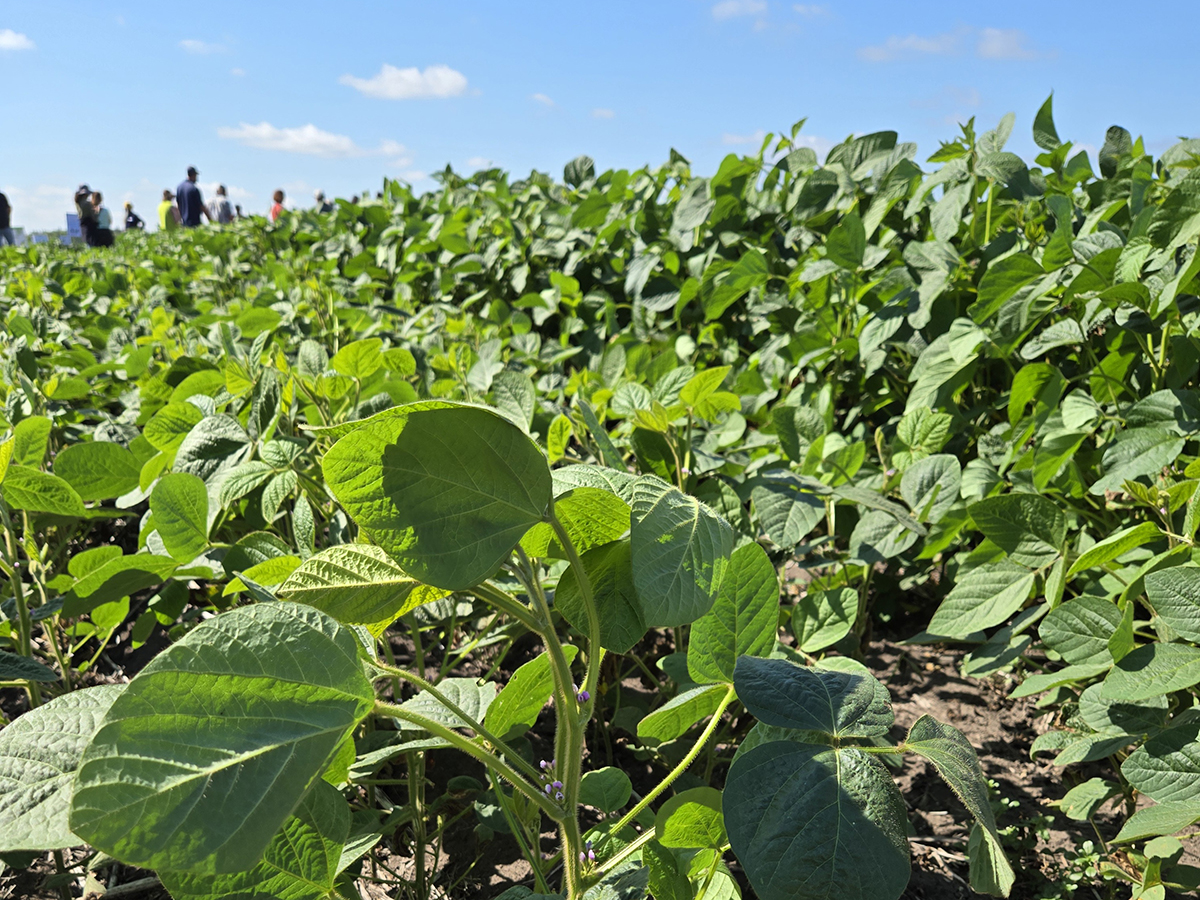GENEVA, Switzerland – As Norwegian farm leader Bjarnie Undheim spoke passionately to an anti-World Trade Organization rally July 26, Ontario egg producer Carolynne Griffith stood at the edge of the small crowd applauding.
The scene was outside the WTO headquarters and the Norwegians had travelled more than 2,000 kilometres to tell the negotiators they wanted no deal with the WTO and liberalized trade.
“We demand the right of every nation to be able to feed itself and for farmers in that country to grow the food,” said Undheim. “Who is benefiting from the free trade we see today? Is it farmers? Or is it the multinationals?”
Read Also

Spider mites big soybean problem this season
Spider mite issues have been geographically limited but significant where they occur, said John Gavloski, an entomologist with Manitoba Agriculture.
Griffith applauded again, knowing the answer.
It was a curious scene as the chair of the Ontario Egg Producers marketing board applauded a proposal that the WTO leave farmers alone, a view that gets little attention these days as negotiators see the only goal is one that cuts subsidies and other protection.
Griffith’s industry, along with other Canadian supply managed sectors in dairy and poultry, has been a key part of WTO strategy planning with the federal government.
But in a July 27 interview during an all-day seminar on food sovereignty that gave prominence to the Norwegians and other WTO skeptics, Griffith made it clear her attendance at the rally was no fluke.
She does not consider the WTO process a friend of farmers or her industry. She has seen it first hand at international farmers’ meetings and in previous Geneva visits to watch the WTO at work. She was there for last year’s July 31 framework agreement that appeared to put both supply management tariffs and the Canadian Wheat Board monopoly on the table for negotiation.
“When I returned to Canada last year, I decided that the WTO is not about farmers and not about preserving the countryside or lifestyles,” said Griffith, part of a four-decades-old Alvinston, Ont., egg operation with 27,000 layers.
“These are people who are making decisions that are going to affect my farm for as long as I live.”
Although the supply managed sector has become a formidable lobbyist in the WTO process, spending millions of dollars to promote the idea that its protectionist tariffs and guaranteed minimum access regulations should be allowed to exist within an increasingly free trade world, the Ontario egg industry leader was not in Geneva to lobby.
She said her sector has little to gain from WTO talks and much to lose. While the federal government vows it will defend supply management tariffs, “we can take nothing for granted.”














